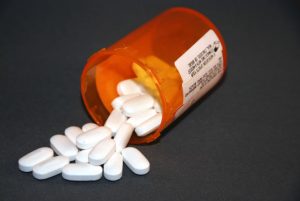When the U.S. Supreme Court in 2011 handed down its decision in Pliva v. Mensing, it essentially left a large group of people – those who use generic prescription drugs – without any recourse if those drugs proved dangerous or defective.
Generally, it’s been held that makers of brand name drugs can’t be liable for generic drugs because they don’t actually make them. The Pliva decision made it so that generic drug makers can’t be liable for failure to warn (a key in any defective drug case) because by federal law, generic drug makers don’t write the labels. The labels are written by the brand name manufacturers and then approved by the U.S. Food & Drug Administration.
All this makes it interesting that the California Supreme Court will be taking on the issue of “innovator liability,” also known as brand manufacturer liability for generics in the case of T.H. v. Novartis Pharm. Corp. You see, California is one of the few states where courts have held that brand name manufacturers could in fact be liable for dangerous generic drugs. That ruling was handed down in Conte v. Wyeth, in which a California appeals court determined the brand name maker of a drug called Reglan, used to treat gastroesophageal reflux disease, could be found liable for injury caused by the generic version. The California Supreme Court declined to review that decision, so it’s been generally accepted in that state.
But now comes the Novartis case, which will test whether the Conte ruling will stand.
In Novartis, the drug at issue was called Brethine. That’s the brand name anyway, and defendant made and sold it under that name until 2001, when it sold the rights to the drug and other companies started making the generic version, terbutaline. It’s an asthma drug, but when other companies got a hold of it, they started marketing it as a way to prevent or delay birth. This was not an approved use.
In fact, there had been numerous studies – going back to the 1970s – showing that it probably wasn’t safe for pregnant women and their fetuses and requesting further study. The drug had been tested on rats and neurological issues with the fetus were shown. Children whose mothers had taken the drug while pregnant tested lower on cognition scores. There was study after study red-flagging potential problems. But what’s a key issue here is the fact the drug label was never updated to include this fact.
So that brings us to the current case.
Plaintiffs are two 6-year-old twins with autism and neurological disorders. Their mother was reportedly given this drug late in her pregnancy to prevent preterm labor. That was in 2007 – six years after defendant Novartis had sold off the rights to Brethine and stopped making it.
But plaintiffs allege Novartis had a duty while it still owned the drug to warn consumers of the risk of the drug to fetal development. Defendant argues it can’t be liable for a drug it never made. However, the appeals court applied the reasoning in the product liability case of Conte and found that it could. Now that the state supreme court has accepted review, we’ll see whether the Conte ruling holds.
If California upholds that ruling, it puts that state at odds with most others, at which point it’s possible the U.S. Supreme Court could take on the issue.
If you are the victim of Massachusetts product liability, call Jeffrey Glassman Injury Lawyers for a free and confidential appointment — (617) 777-7777.
Additional Resources:
Calif. Top Court to Mull Brand Liability for Generics, June 15, 2016, By Julie A. Steinberg, BNA.com
More Blog Entries:
Doctor Fined for Violations Involving Testosterone Replacement Therapy Prescriptions, June 12, 2016, Boston Product Liability Attorney Blog
 Product Liability Lawyer Blog
Product Liability Lawyer Blog


